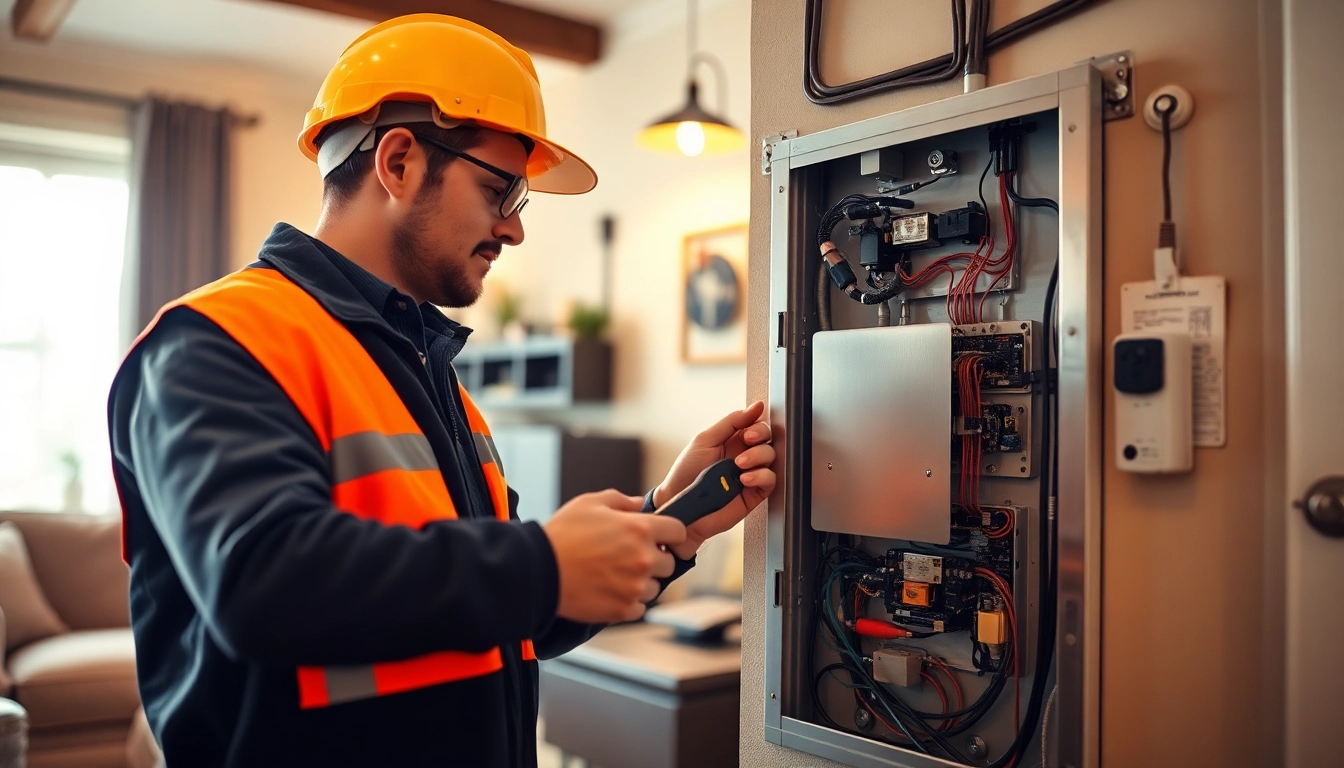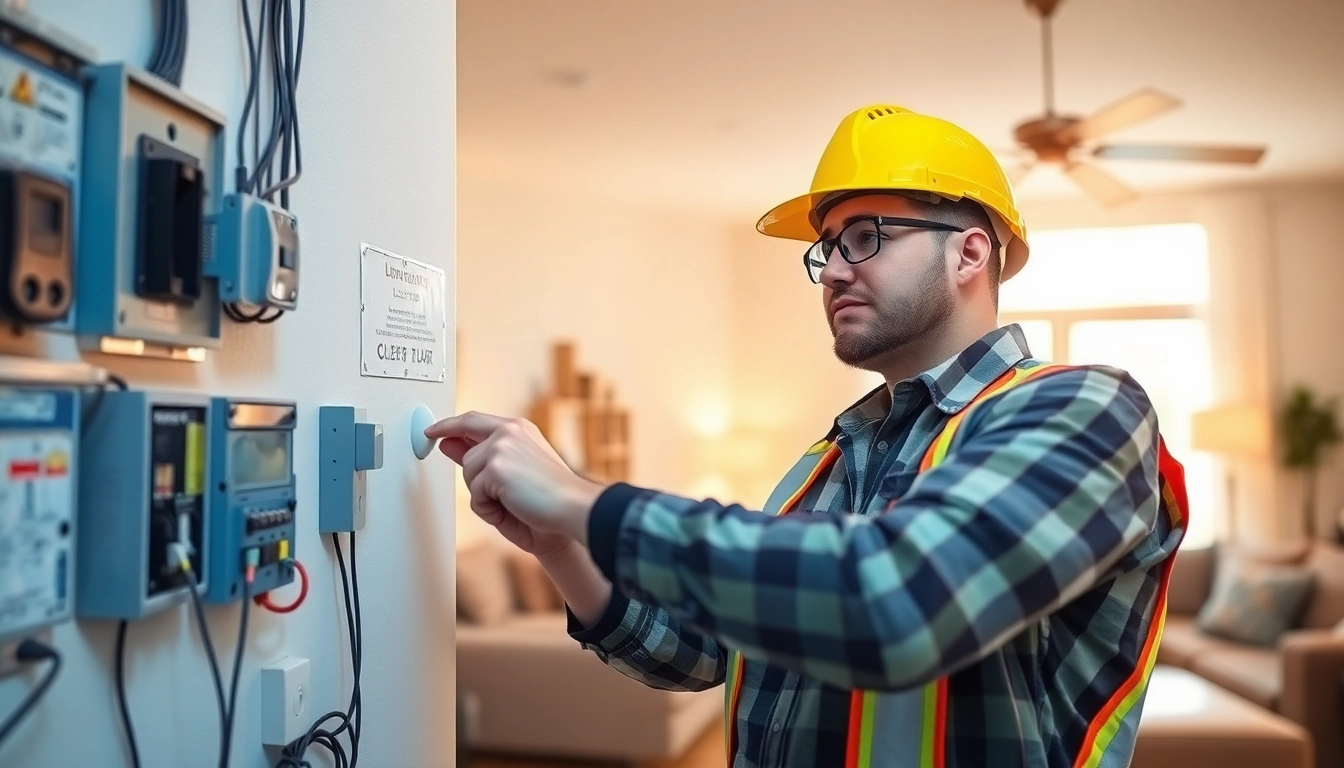Understanding Electrical Service Concepts
Electrical service is essential for the functioning of both residential and commercial properties, providing the necessary power to operate appliances, lights, and HVAC systems. It encompasses the infrastructure and processes that deliver electricity to a building, ensuring safety, reliability, and efficiency. Understanding Electrical Service is crucial for homeowners, business owners, and anyone involved in property management, as it involves not just installation but also maintenance and troubleshooting of electrical systems.
What is Electrical Service?
Electrical service refers to the delivery of electric energy to a building, typically from a utility provider through a service entrance. This includes the distribution of electricity throughout the structure, managed by electrical panels, switchgear, and circuit breakers. The electrical service encompasses all components involved in this delivery, including wires, transformers, and meters. Understanding these components is critical for ensuring that they function correctly and efficiently.
Components of Electrical Service
The primary components of electrical service include:
- Service Entrance: The point where electrical power enters a building, which usually includes a main disconnect and service panel.
- Electrical Panel: Often referred to as a breaker box, it distributes power to various circuits within the property and contains circuit breakers or fuses.
- Circuit Wiring: Conductors that carry electricity from the panel to outlets, switches, and fixtures.
- Grounding System: A critical safety feature that protects against electrical shocks and ensures system stability.
- Service Meter: A device that measures electrical energy consumption for billing purposes.
Importance of Electrical Service
The importance of efficient electrical service cannot be overstated. It plays a pivotal role in ensuring safety, enabling effective use of energy, and supplying adequate power for all devices and appliances. Here are a few reasons it is essential:
- Safety: Properly installed electrical service minimizes the risk of electrical fires, shocks, and equipment damage.
- Efficiency: An efficient electrical service setup can lead to lower energy bills and reduced wastage of electricity.
- Reliability: Dependable electrical service ensures that power is consistently available, supporting both everyday activities and emergency needs.
Types of Electrical Service Available
Residential Electrical Service
Residential electrical service refers specifically to the electrical needs of homes. This includes everything from standard wiring for lighting and outlets to more complex needs such as home automation systems. Factors affecting the type of electrical service required include:
- Size of the home
- Number of electrical devices and appliances
- Future growth potential of the household
Understanding these factors helps in selecting the right electrical service set-up for efficiency and safety.
Commercial Electrical Service
Commercial electrical service must cater to the unique demands of businesses, which often involve higher energy consumption, more complex wiring needs, and greater regulatory requirements. Key aspects include:
- Load Capacity: Commercial properties may require higher capacity service because of the number of devices and equipment used.
- Time-of-Use Rates: Businesses can benefit from understanding how electricity demand fluctuates over time and adjusting their usage to save costs.
- Data Center Requirements: Dedicated power solutions often must be implemented for operations involving data centers and significant computational resources.
Industrial Electrical Service
Industrial electrical service is designed for manufacturing and heavy industries. It includes robust systems capable of supporting heavy machinery and equipment. Key considerations include:
- Three-Phase Power: Most industrial applications require three-phase power for efficiency and reliability.
- Safety Regulations: Compliance with OSHA and other regulations is critical to ensure worker safety and operational legality.
- Backup Systems: Companies often invest in complex backup systems to prevent downtime from power outages.
Common Issues with Electrical Service
Frequent Electrical Service Problems
Several common issues can arise with electrical service, often resulting from improper installation, wear over time, or inadequate maintenance. Some frequent problems include:
- Tripped Circuit Breakers: This can indicate either an overloaded circuit or a malfunctioning appliance.
- Flickering Lights: This may suggest loose wiring, poor connections, or a problem with the electrical panel.
- Power Surges: Surges can damage electronics and indicate issues with the service line or grounding.
Signs You Need Electrical Service
It is critical to remain vigilant for signs that may indicate the need for electrical service. Look for:
- Frequent power interruptions
- Burning smells or scorch marks around outlets
- Buzzing sounds from electrical panels
- Overheating of electrical devices
Emergency Electrical Service Options
In cases of electrical emergencies such as power outages, short circuits, or severe electrical storms, it’s vital to know how to access emergency services. Always have contact information for a reliable electrician handy, and make sure you:
- Report any emergency issues immediately to qualified professionals
- Turn off electricity at the main panel if safe to do so to prevent further damage
- Have a contingency plan for backup power sources for essential appliances
Choosing the Right Electrical Service Provider
Factors to Consider
When selecting an electrical service provider, consider the following:
- Experience: The provider’s experience and reputation in the industry can speak volumes about their reliability and quality of work.
- Licensing and Insurance: Verify that any potential contractor is properly licensed and insured to protect yourself from liability.
- Customer Reviews: Check online reviews and personal references to gauge the provider’s service quality.
Questions to Ask
When interviewing electrical service providers, ensure you ask relevant questions, including:
- What is your approach to safety and compliance with local codes?
- Can you provide an estimated timeline for project completion?
- What warranties or guarantees do you offer on your work?
Evaluating Service Rates
Understanding service rates is essential to ensure that you are getting a fair price for the work done. Consider the following:
- Price Estimates: Obtain estimates from multiple providers to compare costs effectively.
- Hourly Rates vs. Flat Fees: Know if you are being charged hourly or if the project comes with a flat fee.
- Additional Fees: Ask about any potential additional fees for permits, materials, or emergency services.
Maintaining Your Electrical Service Systems
Regular Maintenance Tips
Regular maintenance of electrical systems is crucial to ensure longevity and efficiency. Some maintenance tips include:
- Inspecting electrical panels and circuits annually to identify wear.
- Testing smoke and carbon monoxide detectors periodically.
- Ensuring that outlets and plugs are in good condition without signs of damage.
Upgrades and Improvements
As technology progresses, upgrading electrical systems becomes necessary to keep pace with modern demands. Consider:
- Smart home integrations for convenience and efficiency.
- Replacing old electrical panels with modern, higher-capacity versions.
- Installing energy-efficient lighting solutions to decrease consumption.
Safety Practices for Electrical Service
Prioritizing safety is crucial when dealing with electrical systems. Implement the following practices:
- Always have a licensed electrician perform installations or repairs.
- Educate family members or employees on electrical safety protocols.
- Use surge protectors for sensitive electronic devices.



